Almost all Geology field activities are based in the observation and description of materials and processes in contact direct with the environment. Thus, we mean by transport all means to travel and move as near as possible to the area to study. Excluding weather influence and economic cost, the most usual means of transport have some “advantages” yet also some “handicaps”:
On foot
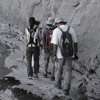
Advantages
- bigger contact with the environment
- suitable for near trips
Handicaps
- unsuitable for far destinations
- inappropriate for very long trips
- group division due to different speeds
Bicycle
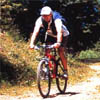
Advantages
- more attractiveness
- suitable to stop anywhere
- appropriate for short trips
Handicaps
- little practical and dangerous for large groups
- more risk in busy roads
- possible small breakdowns
Private car
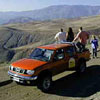
Advantages
- bigger autonomy
- accessibility in the approximations to the stops
- suitable for almost all the environments
Handicaps
- unsuitable for very large groups
- larger risk for inexperienced drivers
- few possibilities of working out of the stops
Train
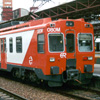
Advantages
- possibility of working during the trip
- suitable for long distances
- gives the chance of watching the landscape
Handicaps
- limited to possible routes and stops
- conditioned by schedule
- bothering passengers
Coach
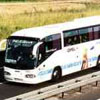
Advantages
- allows defining an accurate itinerary
- appropriate for school groups
- adaptable to timetable
Handicaps
- difficulties to approach some outcrops
- useless for small groups
Metropolitan transport
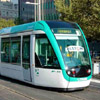
Advantages
- suitable for urban trips
- useful for individual access
Handicaps
- non-existent for intercity routes
- unpractical for large groups

